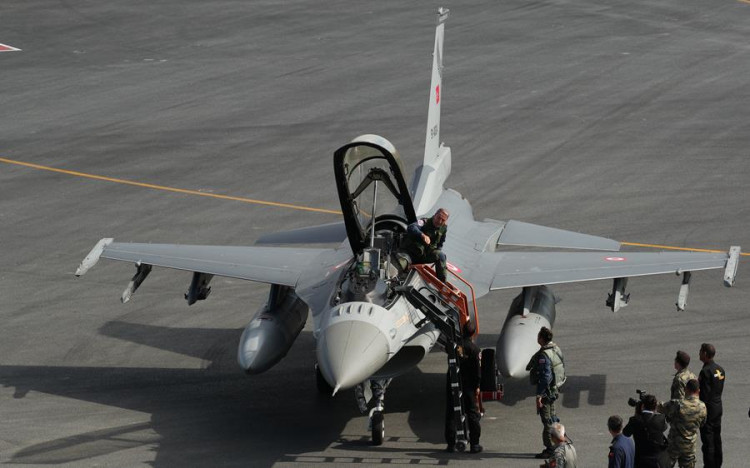Turkey has requested 40 Lockheed Martin F-16 fighter planes and roughly 80 upgrade kits for its existing fighters from the United States, individuals familiar with the situation disclosed, as the NATO partner attempts to modernize its air force after the acquisition of F-35 jets did not materialize.
The multibillion-dollar contract is still going through the U.S. Foreign Military Sales Process, which requires permission from both the U.S. State Department and the U.S. Congress, which has the power to abort deals.
A State Department official said that, "As a matter of policy, the Department does not confirm or comment on potential defense sales or transfers until they have been properly announced to Congress."
The Turkish Embassy in Washington did not respond to a request for comment. The sources spoke on condition of anonymity to discuss the deal.
Turkey had bought more than 100 Lockheed Martin F-35 fighter jets, but was dropped from the contract in 2019 after purchasing Russian S-400 missile defense systems.
The NATO allies' decades-old cooperation has been rocked by tensions over Syria policy, Turkey's deeper links with Moscow, its naval ambitions in the eastern Mediterranean, U.S. charges against a state-run Turkish lender, and deterioration of rights and freedoms in Turkey in the last five years.
The request for the warplanes is likely to face opposition in Congress, where attitudes toward Turkey have fallen dramatically in recent years, owing chiefly to the country's acquisitions of the S-400s and its troubling human rights record.
The procurement of the Russian weapons system by Ankara has also resulted in U.S. sanctions. Washington placed Turkey's Defense Industry Directorate, its chief, Ismail Demir, and three other workers on a no-fly list in December 2020.
Since then, Washington has warned Turkey against purchasing further Russian weapons. However, Turkish President Tayyip Erdogan stated last week that Ankara wants to buy a second batch of S-400s from Russia, a move that might exacerbate tensions with the U.S.
The Biden administration enjoys bipartisan backing in Congress to put more pressure on Ankara, especially over its purchase of Russian arms and its human rights record.






